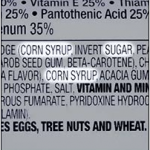Our friendly neighbors to the north are fibbing about the coronavirus in their country, justifying a border closure with the United States that no longer makes sense.
Canada
Four people have cholera in British Columbia – something that's never happened before in that area – creating quite a mystery as to how this could have happened.
As the highest quality of care continues not to be the emphasis in the health care debate — let alone be on par with discussions around access – Canadian health systems remain in the spotlight. This time multiple hospitals in southern Ontario shut their doors to the sickest of babies.
Congratulations to Canada for approving the use of irradiation to help prevent contamination of ground beef from causing foodborne illness. The process has been approved in the US for a variety of foods and purposes, and we're pleased that Canadians can also benefit from its use.
New research shows that when it comes to packaged foods and beverages sold in Canada, two of every three items contain added sugar of some kind. That jarring news comes from a report by Public Health Ontario and the University of Waterloo, a joint venture that included studying labels of more than 40,000 supermarket products.
Canada, like the United States, provides some dietary guidance for its citizens. And like in the U.S., not everyone north of the boarder is happy with the result, despite the fact that they're also experiencing a similar obesity epidemic. Maybe the angst stems from the "latest" Canadian Food Guide, which came out in 2007 and could use an update.
The bees are ok-- that s the message Terence Corcoran hammers home in his latest article for the Financial Post. The piece comes on the heels of Canada s Minister of the Environment, Glen Murray, announcing that the country will start doing more for the declining bee populations. However, as Corcoran explains exhaustively with data, this policy is not only unnecessary but may be harmful to the country s economy.
In the wake of the measles resurgence, public health officials are warning against the use of ineffective homeopathic vaccine alternatives, saying they should be taken off the market.
Genetically-engineered (biotech, GMO) crops are increasingly being utilized by farmers worldwide, with major benefits to them, and to consumers as well. One crop not being so developed: GMO wheat. Why is there none planted nor on the horizon?




